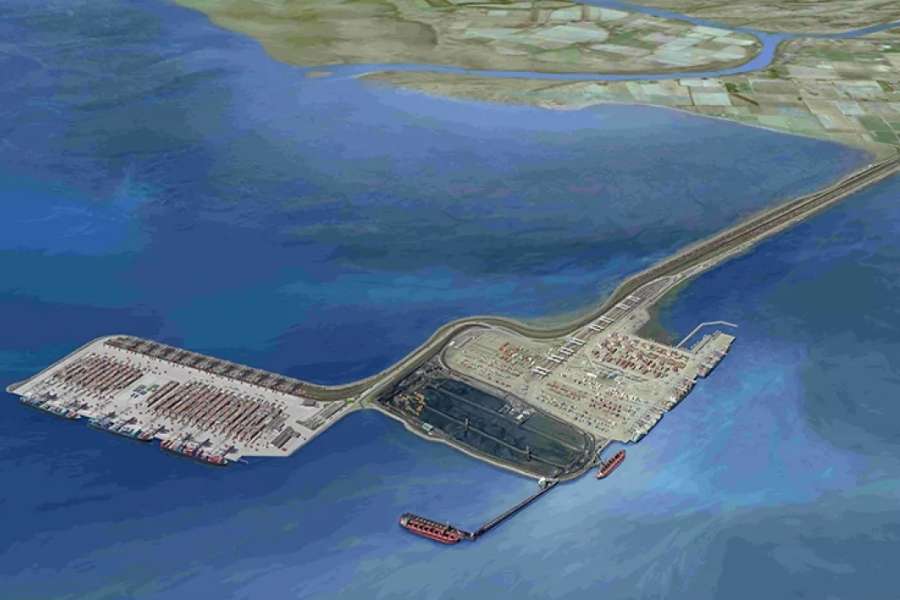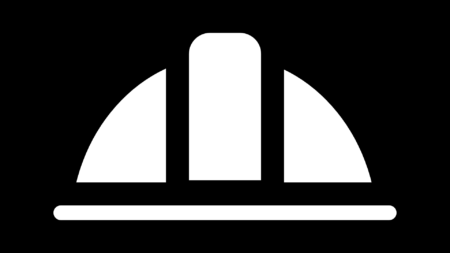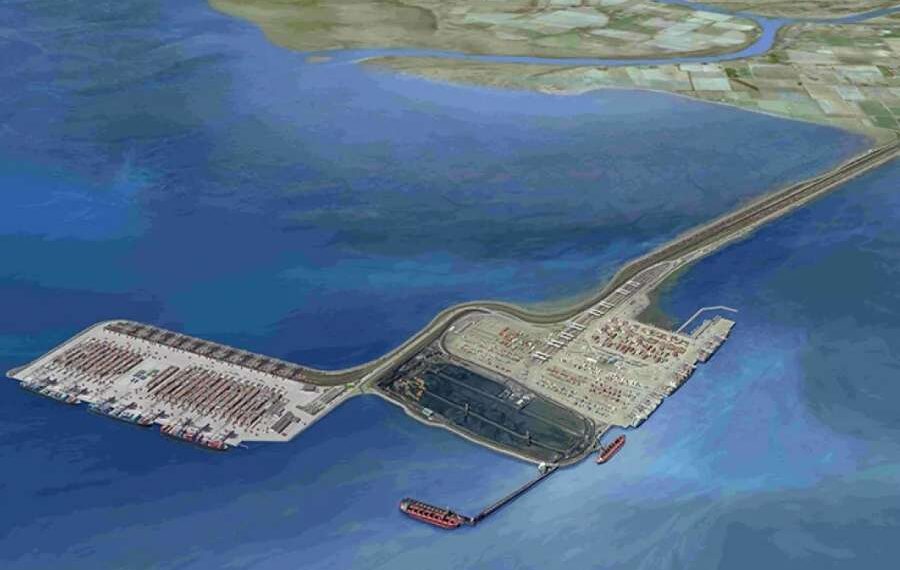The Vancouver Fraser Port Authority is preparing to launch the procurement phase for the construction of the Roberts Bank Terminal 2 Project, a critical marine infrastructure initiative designed to bolster Canada’s long-term trade resilience. A Request for Qualifications (RFQ) for the landmass and wharf package is scheduled for release in July 2025..
Roberts Bank Terminal 2 - Project Details
Roberts Bank Terminal 2 is positioned as a transformational project that will enable the annual movement of more than $100 billion in goods, significantly increasing the Port of Vancouver’s container handling capacity.
Beyond its commercial importance, the project is expected to create over 18,000 construction jobs and generate more than 17,000 permanent positions once operational, contributing an estimated $3 billion annually to Canada’s GDP.
With terminal operations expected to commence in the mid-2030s, this major expansion will not only support economic growth but also improve supply chain reliability and cost stability across the country.

Procurement Approach - Progressive Design-Build with Target Price
Reflecting feedback from ongoing industry engagement, the port authority has opted for a progressive design-build procurement with a target price framework. This approach blends key elements of early contractor involvement, design and build agreements, and alliance contracting features, whereby owners and contractors share the risks and rewards of cost over and underruns.
It is understood that the scope of works for this package will include, at least, the following infrastructure:
Construction of the marine terminal landmass
Wharf structure and berth pocket
Widened causeway
Expanded tug basin
Environmental mitigation and offsetting works
The Vancouver Fraser Port Authority also confirmed that will progress with a 2-phased procurement process, as detailed below:
Phase 1: Request for Qualifications (RFQ)
The first phase of procurement, scheduled for July 2025, will involve a qualification process for construction partners. Interested proponents will need to demonstrate:
A proven track record in large-scale marine infrastructure delivery
Experience with collaborative contracting models
A history of meaningful engagement with First Nations
Capacity to navigate complex environmental and regulatory landscapes
Phase 2: Request for Proposals (RFP)
Up to three shortlisted proponents from the RFQ phase will be invited to participate in the RFP process. This stage will result in a Design and Early Works Agreement (DEWA) that will define the construction logistics, cost development, scheduling, and risk planning necessary to support a final investment decision.
Once this decision is made, a target price design-build agreement will be executed with the successful proponent, paving the way for full-scale construction to begin.
Procurement Timelines
| Milestone | Timeline |
|---|---|
| RFQ Issued | July 2025 |
| RFQ Submission Deadline | Fall 2025 |
| RFP Issued to Shortlisted Proponents | Late 2025 |
| RFP Submission Deadline | Spring 2026 |
| Final Investment Decision & Early Works | 2027 |
| Construction Commencement (Land Reclamation) | 2028 |
Regulatory Progress and Environmental Compliance
Following a rigorous environmental review, the project received approvals from both federal and provincial governments in 2023. In 2024, the port authority submitted a Fisheries Act Authorization application, developed in compliance with the Species at Risk Act, to Fisheries and Oceans Canada. A joint commitment has been made to reach a regulatory decision by October 2026.
Related Article, Project and News
- Aecon-Pormeleau JV secures contract to design in-water works for Montréal Port Authority
- Aecon-Kiewit JV awarded Alliance Contract for the Darlington New Nuclear Project Construction
- GE Vernova’s small modular reactor approved for construction for new Nuclear Project in Ontario
- Request for Proposals (RFP) Issued for Ontario Science Centre Relocation










